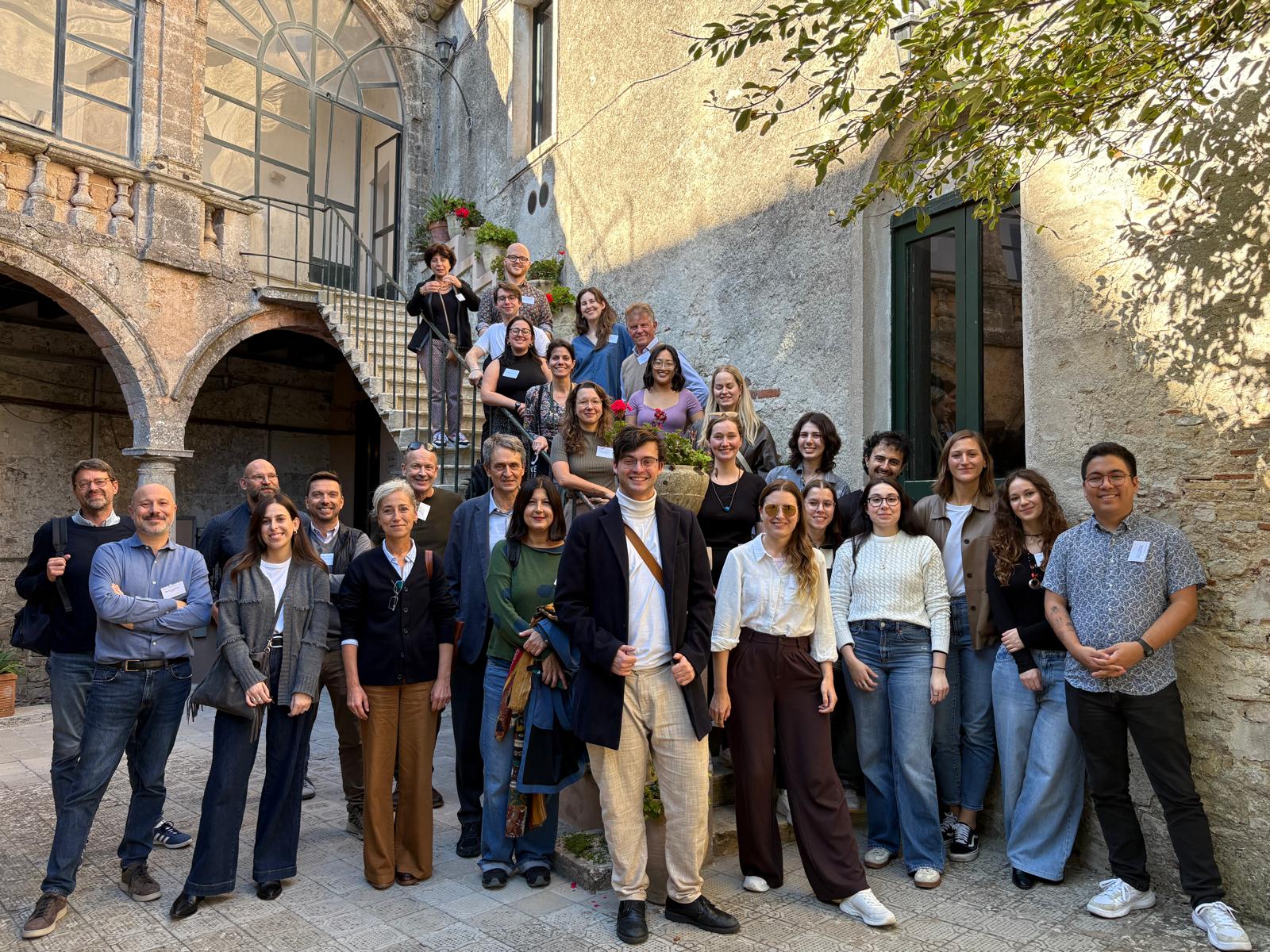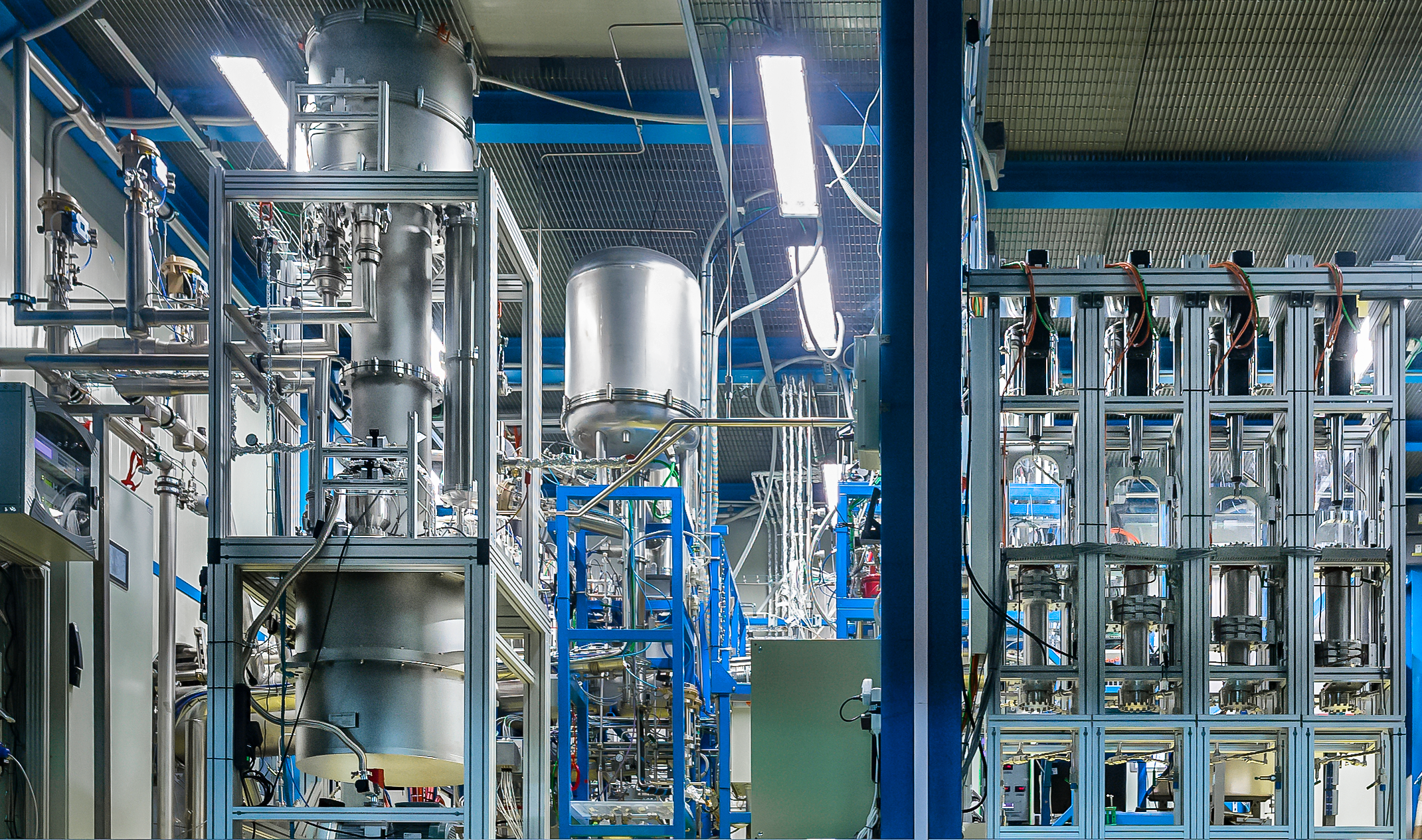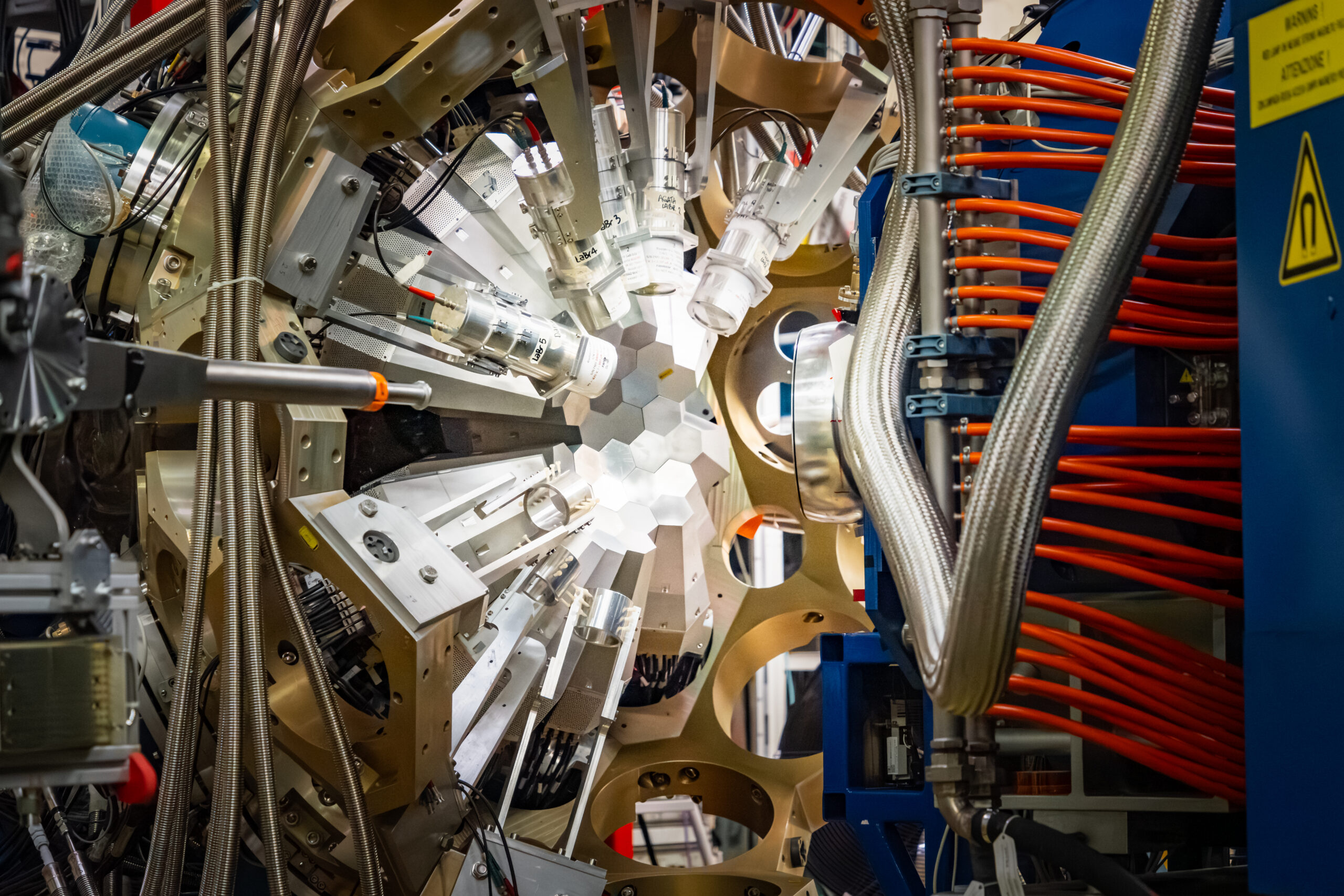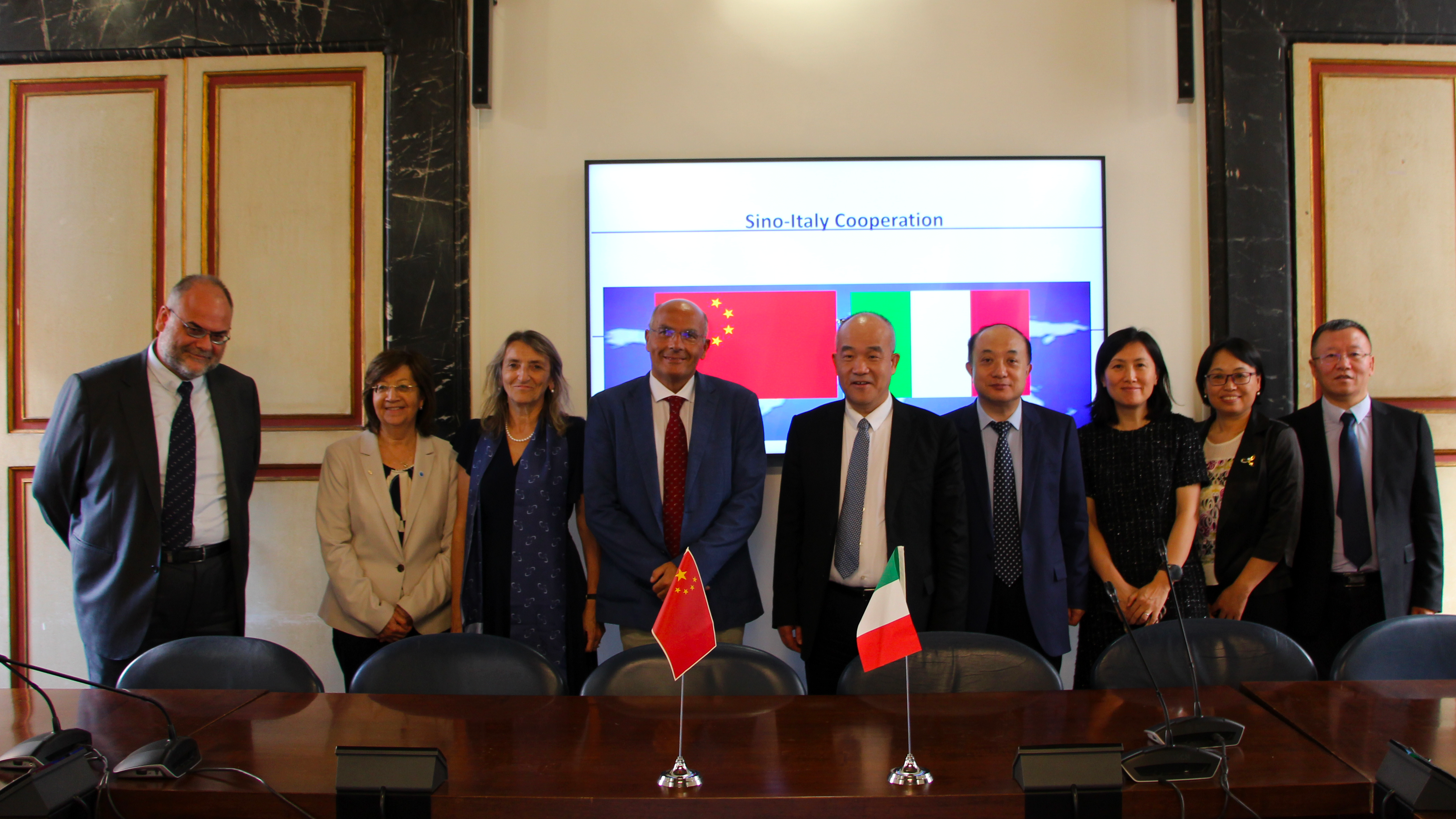 INFN and GSI Helmholtzzentrum für Schweronenforschung recently signed an agreement to test a series of complex magnetic systems – the quadrupole modules of the FAIR accelerator’s SIS100 machine – through the execution of extensive cryogenic tests. The agreement is based on a long and successful collaboration between the two research institutes in the development and construction of superconducting magnets. For FAIR, the advanced technology modules are the result of a complex international production process. First, the quadrupoles’ superconducting units are custom manufactured in Russia. These are composed of various types of magnets, for the focusing and correction of the particle beam. Next, these units are sent to Germany, to the Bilfinger Noell laboratory in Würzburg, where they are assembled with the other components. More than 80 of these quadrupole modules, once assembled, are then sent to the superconductivity laboratory in Salerno, Italy. Here they will be run at the final operational temperature of -269 °C on a cryogenic testing structure specially created for this process. In addition to INFN, the associated Salerno group of the Naples section, and the University of Salerno, ENEA and the Competence Centre for New Technologies and Productive Activities (CRdC) participated in establishing the laboratory with PON funding.
INFN and GSI Helmholtzzentrum für Schweronenforschung recently signed an agreement to test a series of complex magnetic systems – the quadrupole modules of the FAIR accelerator’s SIS100 machine – through the execution of extensive cryogenic tests. The agreement is based on a long and successful collaboration between the two research institutes in the development and construction of superconducting magnets. For FAIR, the advanced technology modules are the result of a complex international production process. First, the quadrupoles’ superconducting units are custom manufactured in Russia. These are composed of various types of magnets, for the focusing and correction of the particle beam. Next, these units are sent to Germany, to the Bilfinger Noell laboratory in Würzburg, where they are assembled with the other components. More than 80 of these quadrupole modules, once assembled, are then sent to the superconductivity laboratory in Salerno, Italy. Here they will be run at the final operational temperature of -269 °C on a cryogenic testing structure specially created for this process. In addition to INFN, the associated Salerno group of the Naples section, and the University of Salerno, ENEA and the Competence Centre for New Technologies and Productive Activities (CRdC) participated in establishing the laboratory with PON funding.
You might also be interested in

ORIGINS. Exploring Science Communication and Journalism

Nobel Prize in Physics 2025: congratulations to John Clarke, Michel H. Devoret and John M. Martinis

INFN statement in support of peace in Gaza and commitment to scientific diplomacy

XENONnT: record levels of purity achieved in the search for dark matter

Physics Photowalk 2025: the ten pictures on the Italian podium

Italy-China: important bilateral meeting between NSFC and INFN
26 September 2025
Read more Italy-China: important bilateral meeting between NSFC and INFN